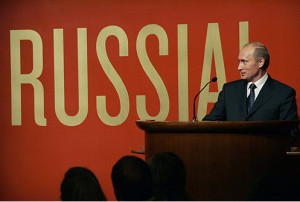 MOSCOW — The president of Russia has signed into a law an anti-terror bill that contains several provisions that have raised concerns among Christians, including requirements that religious citizens obtain permission from the government to share their faith.
MOSCOW — The president of Russia has signed into a law an anti-terror bill that contains several provisions that have raised concerns among Christians, including requirements that religious citizens obtain permission from the government to share their faith.
According to reports, the amendments to the “Yarovaya law,” named after the bill’s author, are meant to protect citizens from terrorists in the country and mandate severe punishment for those found to be financing or aiding terrorism.
However, in addition to requirements about telephone records and online data encryption, the amendments also include text affecting missionary activity throughout Russia. Any preaching or proselytization outside of a church building will now be considered missionary activity, and any persons wishing to share their faith with others must first receive a government permit through a registered religious organization.
“Even in a private home, worship and prayer will only be allowed if there are no unbelievers present,” the Barnabas Fund outlines. “Churches will also be held accountable for the activities of their members. So if, for example, a church member mentions their faith in conversation with a work colleague, not only the church member but also the church itself could be punished…”
Violators could face up to $780 for an individual and $15,500 for an organization. Foreign missionaries could possibly face expulsion if they violate the law and/or speak in churches without a work permit.
“It could stop missionary activity to anybody but representatives, registered organizations and groups. It would require every missionary to have documents with specific information proving connections to a registered religious group,” Joel Griffith of the Slavic Gospel Association told Mission Network News.
Several evangelical leaders wrote a letter to Putin following the law’s passage to express their concerns about the potential ramifications of the legislation, which they believe is a violation of their religious liberty rights.
“The obligation on every believer to have a special permit to spread his or her beliefs, as well as hand out religious literature and material outside of places of worship and used structures is not only absurd and offensive, but also creates the basis for mass persecution of believers for violating these provisions,” the letter stated.
“Soviet history shows us how many people of different faiths have been persecuted for spreading the Word of God. This law brings us back to a shameful past,” it said.
The Barnabas Fund believes that the law is simply “using the excuse of anti-terrorist legislation to clamp down on any churches other than the Russian Orthodox, support for which is closely tied to Russian nationalism.”
Griffith says that at this point, there is no telling how the law will be enforced. Christians are praying that the language of the legislation will be altered or repealed.
“There are potentially very wide-sweeping ramifications to this law. It just depends on, again, how it is going to be enforced and that is a very huge question mark,” he said.
Become a Christian News Network Supporter...


